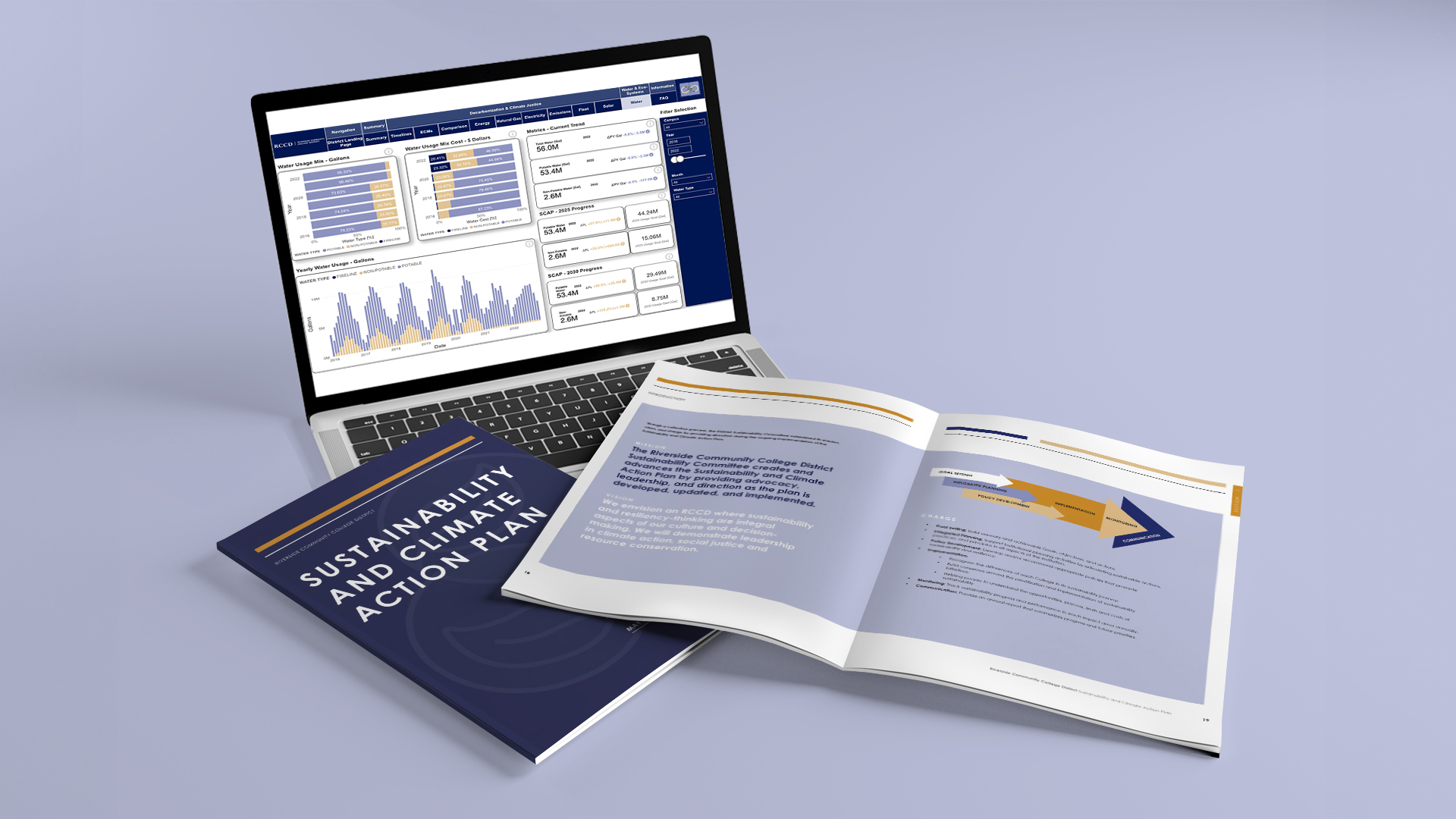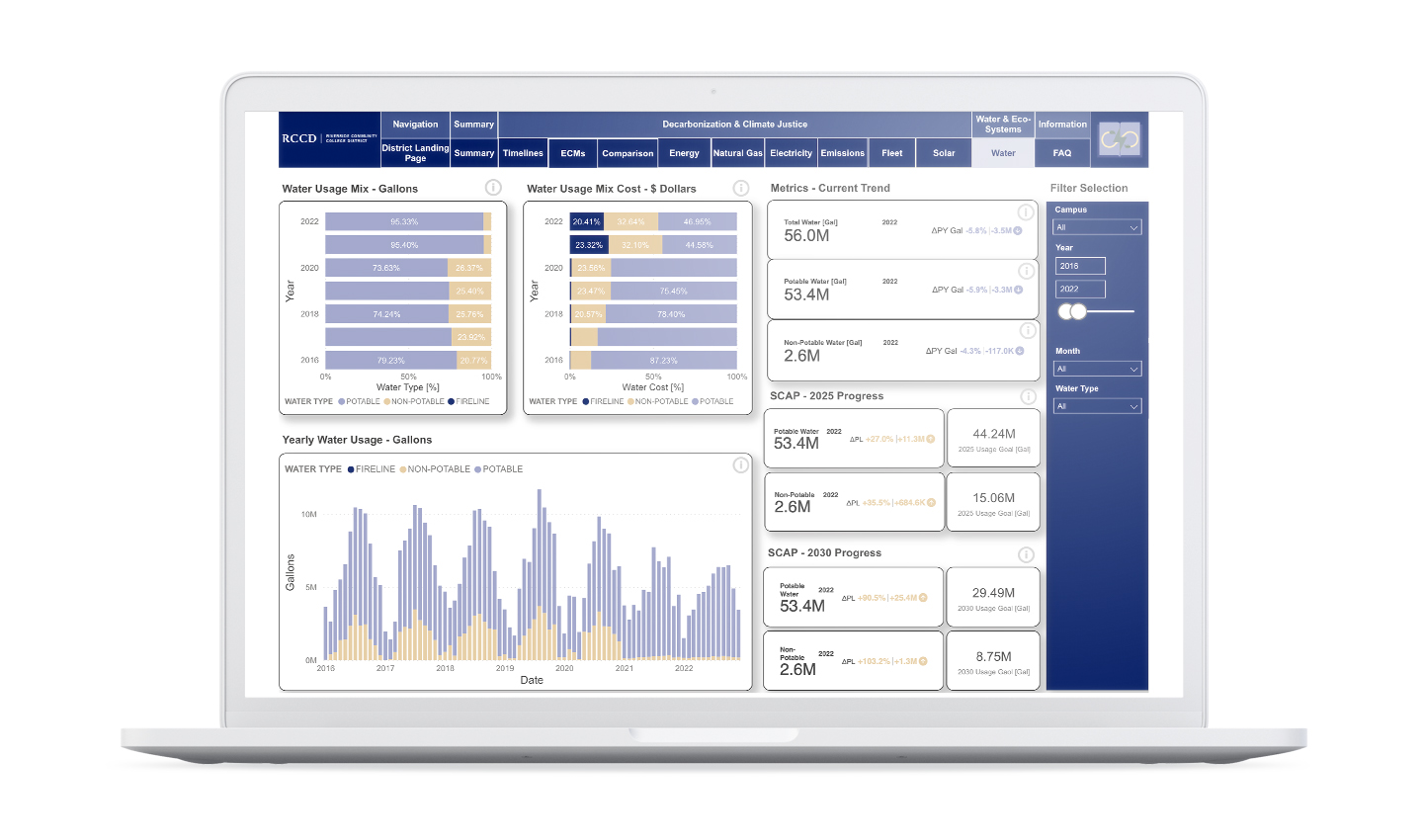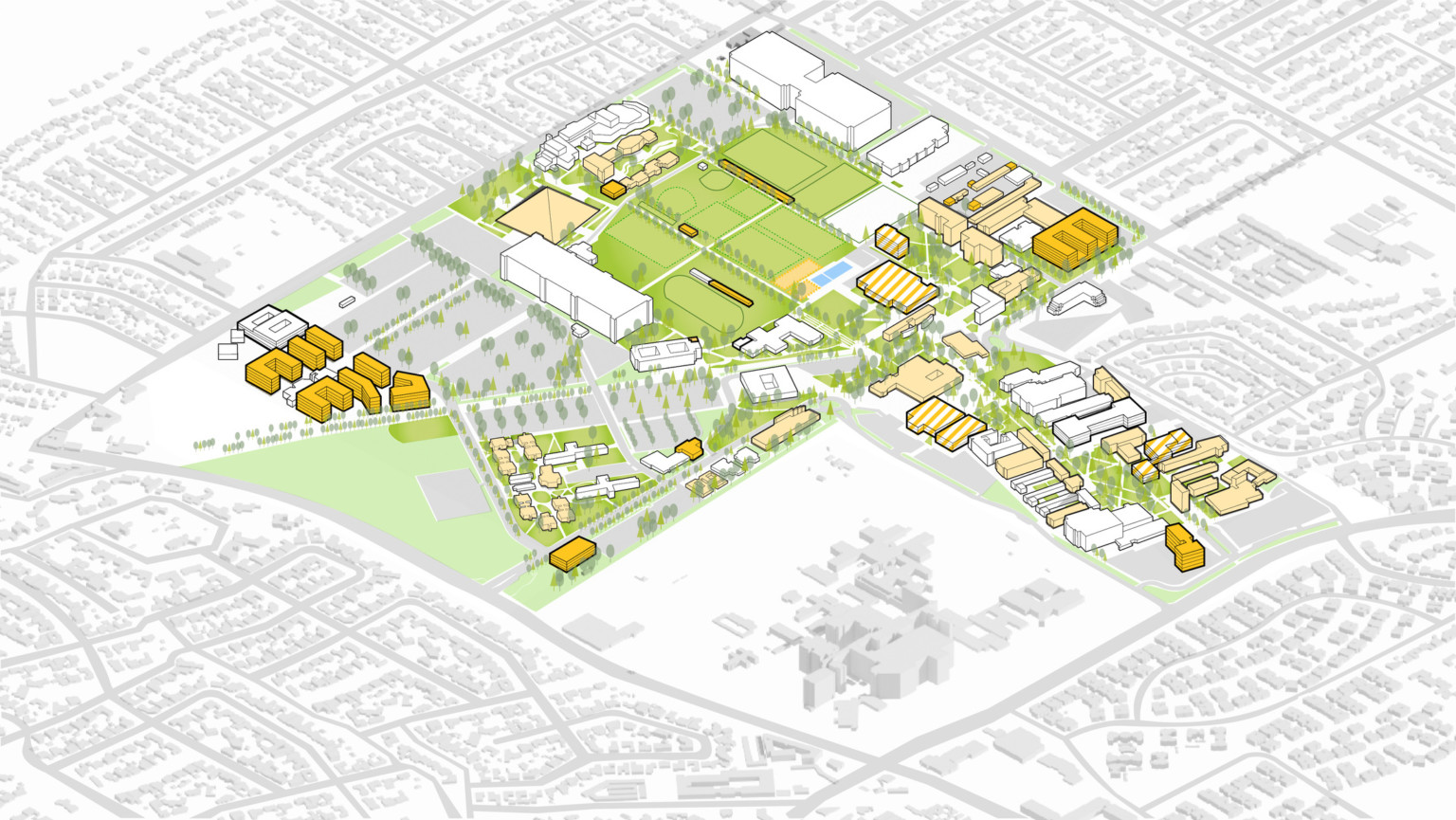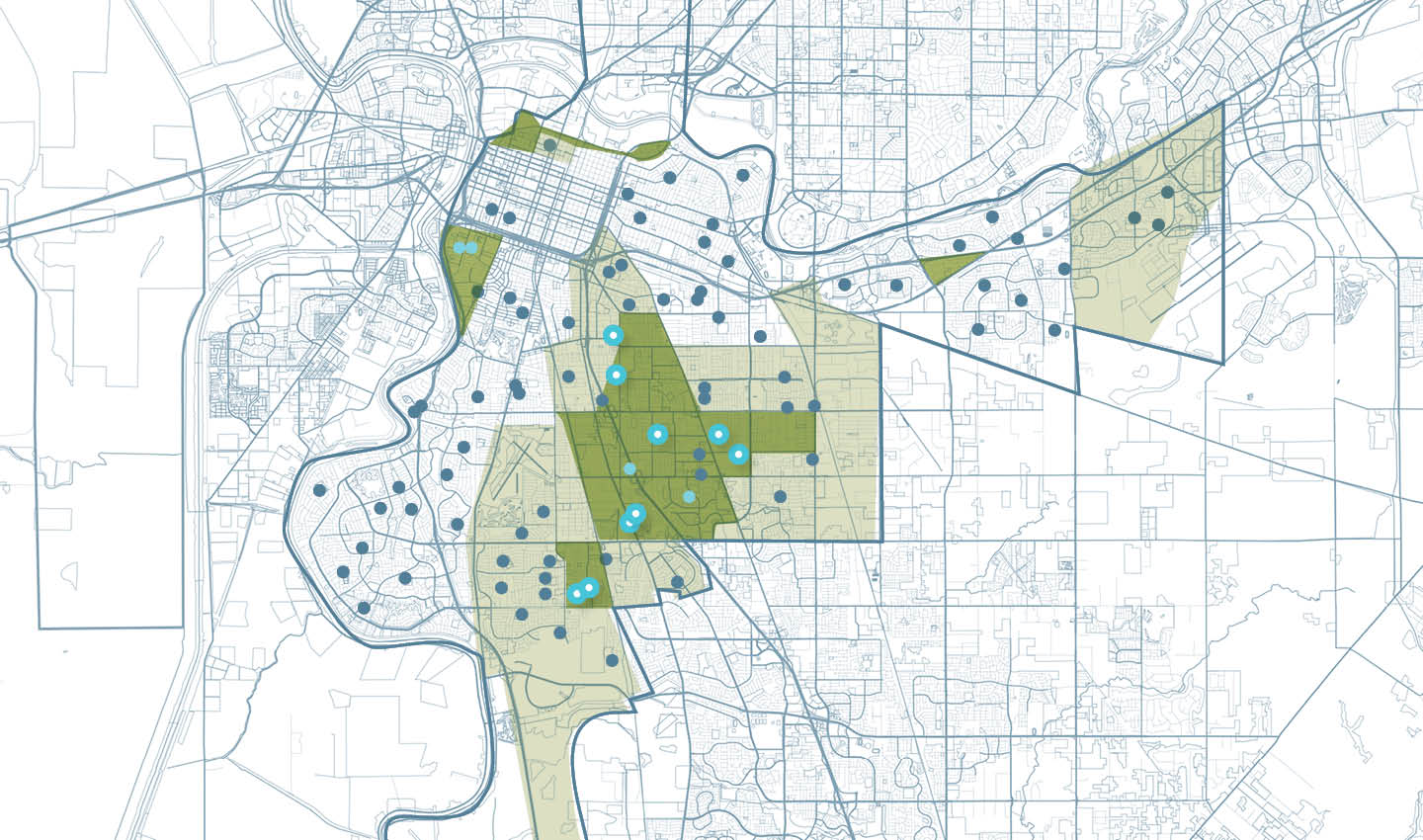
Riverside Community College District Sustainability and Climate Action Plan
RCCD Embraces a Cultural Shift Toward a Sustainable Future
Project Location
Riverside, CA
Client
Riverside Community College District
Area
214 Acres (Moreno Valley College: 34 Acres, Norco College: 66 Acres, Riverside Community College: 114 Acres)
Services
Climate Strategy, Energy Planning
A Cultural Transformation
The goal of the Sustainability and Climate Action Plan is to identify ways for environmental, economic, and social sustainability to be fostered within RCCD.
Three Lenses of Sustainability
RCCD believes sustainability is founded on three aspects: Environmental, Social, and Economic. Sustainability balances all three systems forming RCCD’s holistic definition of triple bottom line sustainability. Resiliency planning accounts for the impacts of climate change across RCCD. Understanding RCCD’s climate hazards and environmental risks, such as excessive heat waves, drought, and air quality, requires education, awareness, and action. Planning for these risks will allow RCCD to adapt and thrive.
Sustainability VALUES Sessions
Eight VALUES sessions were held across the district, including District Sustainability Committee, Moreno Valley College’s Resources Council and Associated Students, Norco College’s Resources Council and Associated Students, and Riverside City College’s Physical Resources Council and Associated Students. The priorities from all sessions were synthesized into the top impacts areas that stakeholders agreed were most important to address in the Sustainability and Climate Action plan. Through the large-scale engagement effort with campus users 64 VALUES cards were distilled down to ten topics that were collectively identified as most important to constituents.
Top-Tier Impact Areas Explained
These topics are identified as Impact Areas and were then organized into three levels of focus: Included, Influenced, and Reinforced. The top-tier or Included impact areas include the creation of goals, objectives, and actions unique to the Sustainability and Climate Action Plan. The middle-tier or Influenced impact areas relate to other District or College plans. The goals and objectives crafted for these impact areas create a sustainability lens to influence future District and College plans. The final tier or Reinforced include impact areas where no goals and objectives are formed but connects to other plans and initiatives to help reinforce Community Partnerships and efforts around Equity and Social Justice.
Dashboard Tools
An Integrated Energy Master Plan, commonly referred to as IEMP, is a plan for a large portfolio of buildings to reduce resource consumption, including electricity, natural gas, and water, through quantified optimizations over five to 15 years. The IEMP Dashboard contains the information gathered during the preparation of the IEMP as well as recommendations. Information such as greenhouse gas emission, energy and water use, and district vehicle fleet information can be viewed through the interactive dashboard.

Capital Planning Model
Total Cost of Ownership is a tool to holistically understand the true cost of ownership of any asset or investment as it considers not only the initial capital costs required but the long-term operations costs. Our team collected data on maintenance budgets, operations, maintenance personnel, and long-term capital planning projects to understand the total cost of ownership for RCCD.
Please wait while flipbook is loading. For more related info, FAQs and issues please refer to DearFlip WordPress Flipbook Plugin Help documentation.

